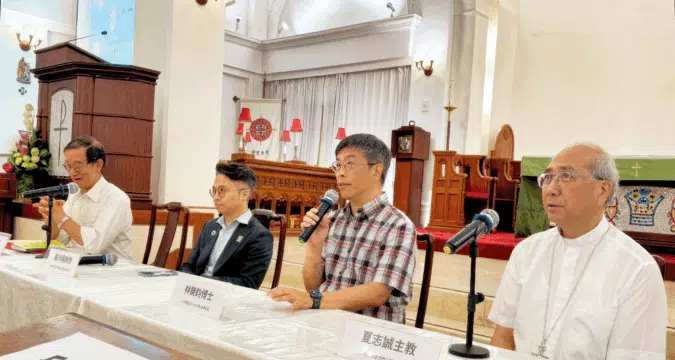Church leaders, scientists, and environmental advocates in Hong Kong gathered for an interfaith forum to revisit Laudato Si’, the late Pope Francis’ encyclical on care for creation, and to renew the call for ecological conversion amid accelerating climate change.
The event, held at All Saints’ Cathedral of the Anglican Church in Mongkok, was organized by the Catholic Diocesan Commission for Integral Human Development in collaboration with Protestant environmental groups.
It aimed to deepen awareness of environmental justice and inspire practical steps grounded in faith and science, according to a report by the Diocese of Hong Kong’s Sunday Examiner.
Consumerism under scrutiny
Lam Chiu-ying, former director of the Hong Kong Observatory, criticized global consumer culture and its environmental consequences, blaming unchecked capitalism and mass media for fueling a crisis of overconsumption.
“The consumption process involves exploiting nature, as natural resources are used to create products sold to consumers,” Lam said.
He condemned the outsourcing of pollution by wealthy nations to poorer ones while simultaneously holding them responsible for environmental degradation.
Lam said global extraction of natural materials had surged from 22 billion tonnes in 1970 to 70 billion tonnes by 2010.
Citing the rise of fast fashion, he warned that aggressive consumption habits not only strain ecological systems but also lead to “a psychological void.”
Quoting Laudato Si’ paragraph 158, Lam reiterated Pope Francis’ call for “an integrated approach to combating poverty, restoring dignity to those excluded, and simultaneously protecting nature.”
He encouraged linking sustainability to personal well-being. “Setting my air conditioner to 27°C not only saves energy and lowers costs but also reduces the risk of catching a cold,” he said.
Scientific urgency for sustainable choices
Professor Amos Tai of the Chinese University of Hong Kong’s Earth and Environmental Sciences Programme said the world is facing record-breaking heat and ecological instability.
“2025 is expected to be the warmest period in human history, with the highest rate of climate change ever recorded,” he said.
Introducing the planetary boundary theory, Tai explained how breaching thresholds in biodiversity and nitrogen cycles threatens global ecological balance.
He cited Kiribati’s vulnerability to sea level rise and unpredictable rainfall in Uganda that has turned agriculture into “gambling.”
Tai emphasized the environmental toll of livestock production and urged dietary shifts. He shared that he avoids beef and prefers white meat to reduce his carbon footprint.
“True ecological conversion arises not from guilt or obligation, but from inner conviction and a deeper bond with creation,” he said.
A pastoral call to act with compassion
Auxiliary Bishop Joseph Ha Chi-shing reflected on the spiritual dimensions of ecological care, drawing on the Parable of the Good Samaritan.
He likened the Earth to “the injured man left on the roadside, wounded by human greed and carelessness.”
Citing a World Wide Fund for Nature report, Bishop Ha warned that if consumption trends persist, “humanity will require two Earths by 2030” to meet its demands.
He called on the faithful to act with compassion. “Seeing and compassion go hand in hand,” he said, urging believers not to turn away from “ecological suffering” with indifference.
Clarifying the biblical command to “govern the Earth,” Bishop Ha stressed that it means stewardship, not domination. He urged contentment and self-discipline as core expressions of ecological concern.
“We should love not only fellow humans but all creatures, because we are one family,” he said. “One way to love nature is to be content with what we have.”
The forum concluded with a shared call to live out the spirit of Laudato Si’ through daily actions and a deeper ecological commitment rooted in both faith and science.






